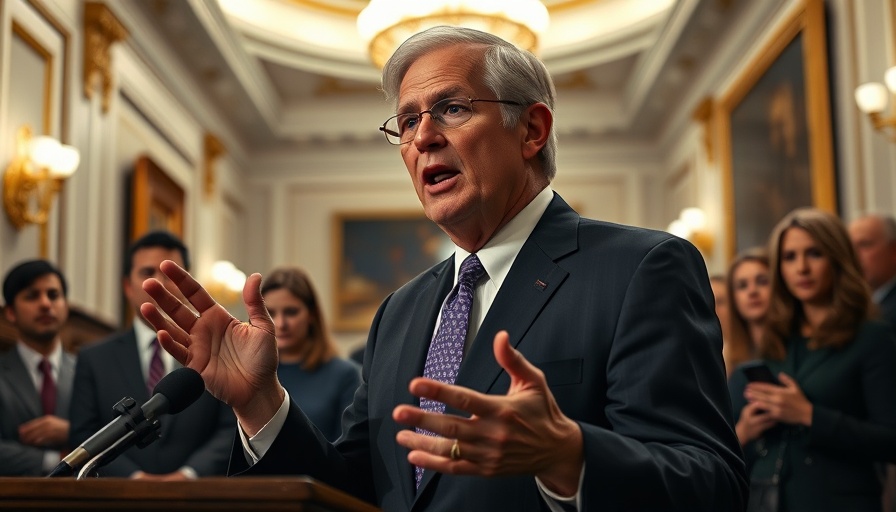
Senate Democrats Face a Critical Decision on Government Funding
As the clock ticks down to a potential government shutdown, Senate Democrats stand at a crossroads. Following a narrow approval by House Republicans of a continuing resolution to fund the government until September, the Senate now finds itself grappling with a formidable dilemma. With a rapidly approaching March 14 deadline, Democrats are weighing whether to support the House measure or risk a government shutdown that could have dire ramifications if not addressed.
The Contentious Proposal from House Republicans
With the House passing the continuing resolution by a slim 217-213 margin, dissent within the ranks has escalated. The proposal, which aims to bolster military funding while significantly cutting non-defense expenditures, has generated mixed reactions among Senate Democrats. Many Democratic senators, including Elizabeth Warren of Massachusetts, criticize the proposal as emblematic of Republican poor values, branded it a "shutdown bill" that irresponsibly trims resources crucial for working families.
The proposed funding commitments include a notable increase in defense spending at the expense of programs aimed at social support and infrastructure, sparking frustrations among Democrats who argue that this undermines essential services.
Democratic Divisions: A Fractured Response
The party's leadership finds itself in uncharted territory, with internal disputes over the best course of action. Some senators favor a temporary stopgap to provide more negotiating time on spending allocations, while others voice hesitations about jeopardizing government functions. Sen. Angus King of Maine characterized the decision as one between a "pretty bad CR" and the even less favorable alternative of a shutdown. This stark choice reflects an underlying tension and lack of consensus within the party as they consider the implications of their vote.
Strategic Considerations: Impact of Local Politics
Intriguingly, the dynamics of Senate support may hinge on regional politics. Senators from states that President Trump previously carried in elections might have a vested interest in granting bipartisan support to avert a government shutdown. This pressure adds a layer of complexity to the already challenging decision-making process, as Senators navigate the fine line between party allegiance and constituent expectations.
Specifically, Senator Raphael Warnock of Georgia suggested that his colleagues must confront a difficult choice—support a bad bill or risk the chaos that a shutdown would bring. His reflections underscore how local factors could dictate voting behaviors among Senate Democrats.
Future Implications: What Lies Ahead
The forthcoming Senate vote has major implications, not only for government operations but also for the relationships between the executive and legislative branches under President Trump’s administration. Lawmakers express concern that a government shutdown could empower Trump’s administration by enabling it to operate without congressional oversight concerning spending decisions.
A Need for Collaboration and Bipartisan Compromise
The essence of the current predicament prompts a call for collaboration across party lines, which historically characterizes the budgetary process. While Senate Democrats are still deliberating, the importance of forming a bipartisan agreement can't be overstated. As discussions unfold, there remains a cautiously optimistic hope that Senate leaders can come together to craft a solution that reflects the needs of all constituents.”
Final Thoughts: The Stakes of Government Functionality
As Senate Democrats prepare to meet and discuss their next steps, the stakes are evident. A government shutdown affects millions of Americans and halts key governmental functions, amplifying voices on both sides of the aisle calling for decision-making that reflects a commitment to public service and effective governance. Whatever the outcome, the choices made in the coming days will resonate for months, shaping the political landscape as we edge closer to the 2024 elections.
This legislative challenge serves as a crucial moment for Senate Democrats, who must balance their ideological beliefs with the pragmatic need to govern efficiently. Stay informed as events unfold in Washington—whatever your stance, this decision will undoubtedly shape the course of national policy and governance in the months ahead.
 Add Element
Add Element  Add Row
Add Row 



 Add Row
Add Row  Add
Add 


Write A Comment